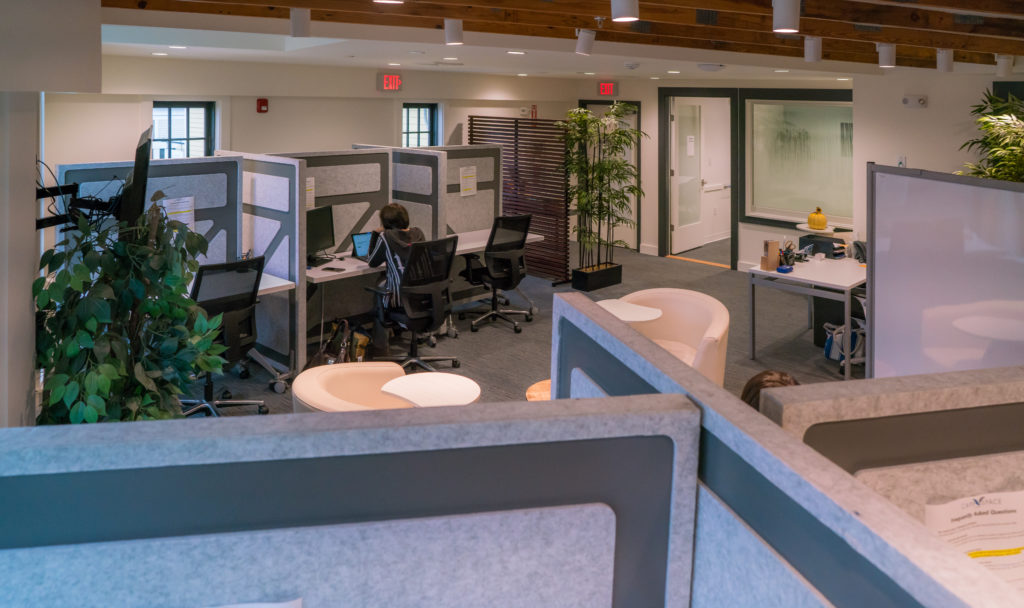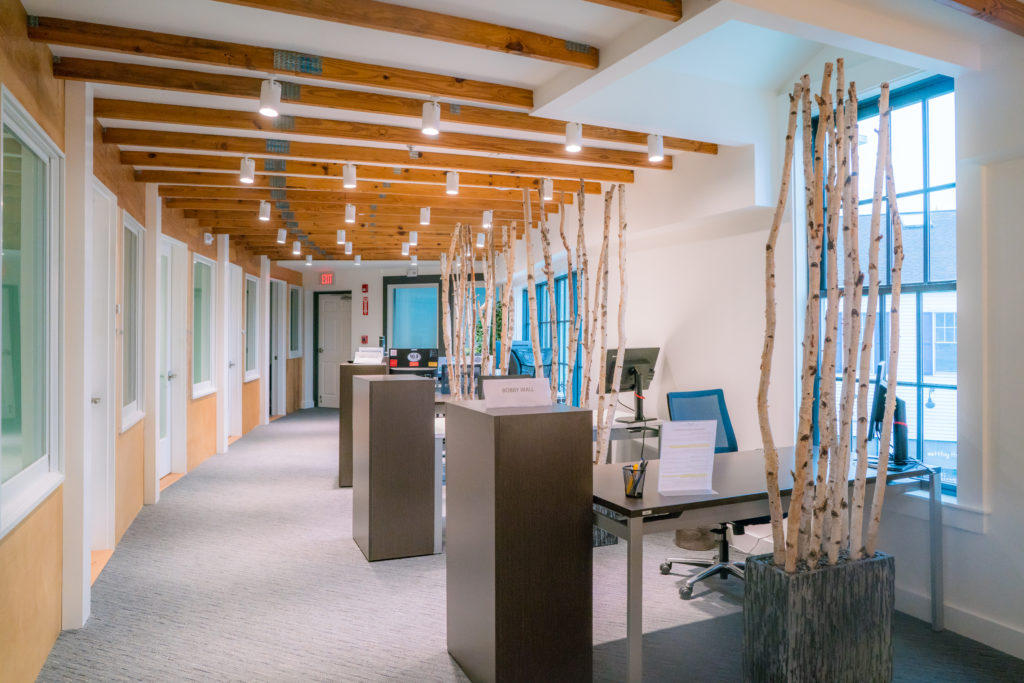The rise of remote work has fueled the digital nomad lifestyle, where people with location-independent jobs travel the world while working online. Over 60 country offering digital nomad visas, so almost 1 in 3 country is offering this option to attract money. But for these footloose entrepreneurs, a key question arises: coworking space or home office?
This seemingly simple decision hinges on several factors, each impacting productivity, creativity, and well-being. Let’s delve into the pros and cons of each option, focusing on three crucial aspects: internet speed, separation of work and personal life, and opportunities to meet new people.
Internet Speed: The Lifeline of the Digital Nomad
For any digital nomad, reliable and fast internet is the lifeblood of their work. Both coworking spaces and home offices can offer this, but with varying degrees of certainty.
Coworking Spaces: Generally, coworking spaces advertise high-speed internet connections as a selling point. Many boast fiber optic lines for seamless video conferencing, file uploads, and downloads. But sometimes in some places with multiple users sharing the bandwidth, peak hours can lead to slowdowns and frustrating lag. Additionally, the quality of internet service providers (ISPs) in different locations can be unpredictable.
Home Offices: When staying in a single location, digital nomads can research ISPs beforehand and choose one known for reliable service and speed. However, this advantage hinges on choosing accommodation with the necessary infrastructure. Vacation rentals or budget-friendly apartments might have limited internet packages or outdated equipment.
The Verdict: Coworking spaces offer a reliable high-speed internet safety net, eliminating the research burden for digital nomads and ensuring a productive workflow. However, it’s always wise to check user reviews and inquire about internet service providers before committing to a specific space to avoid unpleasant surprises.
Separation of Work and Personal Life: Blurring the Lines or Drawing Boundaries?
Digital nomads often struggle to maintain a healthy separation between work and personal life. The environment where they spend most of their time heavily influences this.
Coworking Spaces: Designed for work, coworking spaces inherently encourage a professional mindset. The presence of other focused individuals and a structured environment can help digital nomads switch on and get things done. However, the constant hum of activity and lack of a dedicated workspace can make it difficult to “unplug” at the end of the workday. Leaving the office can be the only way to truly separate work from personal life.
Home Offices: Having a designated workspace within your living space can be a double-edged sword. While it fosters focus and concentration, the constant reminder of work can blur boundaries. Additionally, distractions like household chores or the lure of Netflix can make it hard to stay on task. Creating a dedicated work area that can be physically closed off at the end of the day is essential for a healthy work-life balance.
The Verdict: Coworking spaces offer a strong delineation between work and personal life, but achieving this balance requires setting firm boundaries within the open environment. Home offices provide greater control over separation, but require discipline to avoid distractions and maintain a “work mode” mentality.
Meeting New People: Fostering Camaraderie or Flying Solo?
Human connection is a fundamental element of well-being, and digital nomads on the move can face social isolation, especially when they travel solo. Both coworking spaces and home offices offer opportunities for interaction, but in very different ways.
Coworking Spaces: One of the biggest advantages of coworking spaces is the chance to meet like-minded individuals. These spaces often host networking events, workshops, and social gatherings. Casual interactions with fellow digital nomads can lead to collaborations, friendships, and valuable support networks. However, the level of social interaction can be unpredictable and depend heavily on the specific space and its clientele.
Home Offices: Building a social life can be challenging when working remotely from a home office. However, digital nomads can leverage online communities, attend local meetups, and co-working cafes to connect with others. The level of interaction in this case requires more proactive effort on the nomad’s part.
The Verdict: Coworking spaces offer a readily available network for potential friendships and collaboration. However, fostering social connections requires a proactive approach within the space. While home offices present a social challenge, online communities and local events can bridge the gap, albeit with more effort.
The Final Decision: A Balancing Act
There’s no one-size-fits-all answer for digital nomads. The ideal workspace hinges on personal preferences and priorities.
Here are some factors to consider:
- Personality: Extroverts might thrive in the social atmosphere of coworking spaces, while introverts might prefer the solitude of a home office.
- Work Style: Those who require intense focus might favor the controlled environment of a home office, while those who crave collaboration might
- benefit from a coworking space.
- Travel Style: Digital nomads who move frequently might find home office setups impractical, while those staying in one location for longer periods can invest in creating a dedicated workspace. Cape Space also offer network of coworking spaces.
- Budget: Coworking spaces can be expensive, with monthly memberships and additional fees for amenities like meeting rooms. However, home offices require an initial investment in proper equipment and internet plans.
The Hybrid Approach: The Best of Both Worlds
Many digital nomads leverage a hybrid approach, utilizing both coworking spaces and home offices depending on their needs. Coworking spaces can be a valuable resource in new locations, offering a jumpstart on internet connectivity, a professional environment to acclimate, and the chance to meet new people.
As digital nomads settle into a location for a longer period, they can establish a home office for focused work and cost-effectiveness. And then still a lot of our clients prefer to get out from home and use coworking space for a better focus and productivity.
Ultimately, the key is to embrace flexibility. Experiment with both options, assess what works best for your productivity and well-being, and adapt your approach as your work style and travel patterns evolve. The beauty of the digital nomad lifestyle lies in the freedom to design a work environment that fosters creativity, connection, and a healthy work-life balance.
Bonus Tip:
Coworking Space Etiquette for Digital Nomads:
- Respect the space and fellow coworkers. Be mindful of noise levels and maintain a professional demeanor.
- Utilize common areas responsibly. Clean up after yourself and avoid monopolizing amenities.
- Be open to networking, but be respectful of others’ work time.
By following these tips, digital nomads can leverage the benefits of coworking spaces while fostering a positive and productive work environment.








